Being An ACE Mentor: Benefiting Students While Strengthening The Construction Industry
by Mark Felgate on Aug 8, 2022 9:35:48 AM
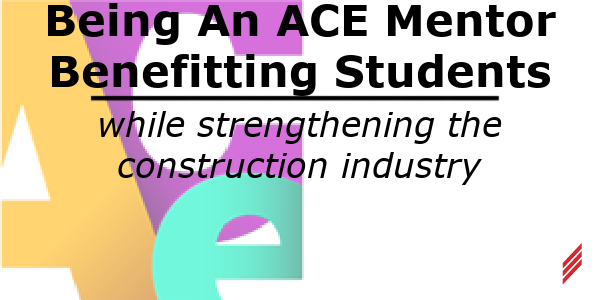
Fifteen years ago, a co-worker asked me if I would be willing to be a mentor in his place when he had commitments that prevented him from continuing to participate. Not having any previous experience as a mentor, I did not know what to expect. Going to my first day as a mentor, I worked with a group of Architects, Contractors and Engineers that works with inner-city high school students to develop a project from a concept to building a massing model to doing a presentation of the project at the end of a fifteen week program.
Initial Observations
On the first day that I participated included seeing students that did not seem to want to be there, sitting with their arms crossed while leaning back somewhat slumped in their chairs and seemingly not paying attention to what the mentors were sharing. But then, I observed a transformation. Those same students that previously did not seem interested in participating become engaged in the project, showing excitement and taking ownership in the project.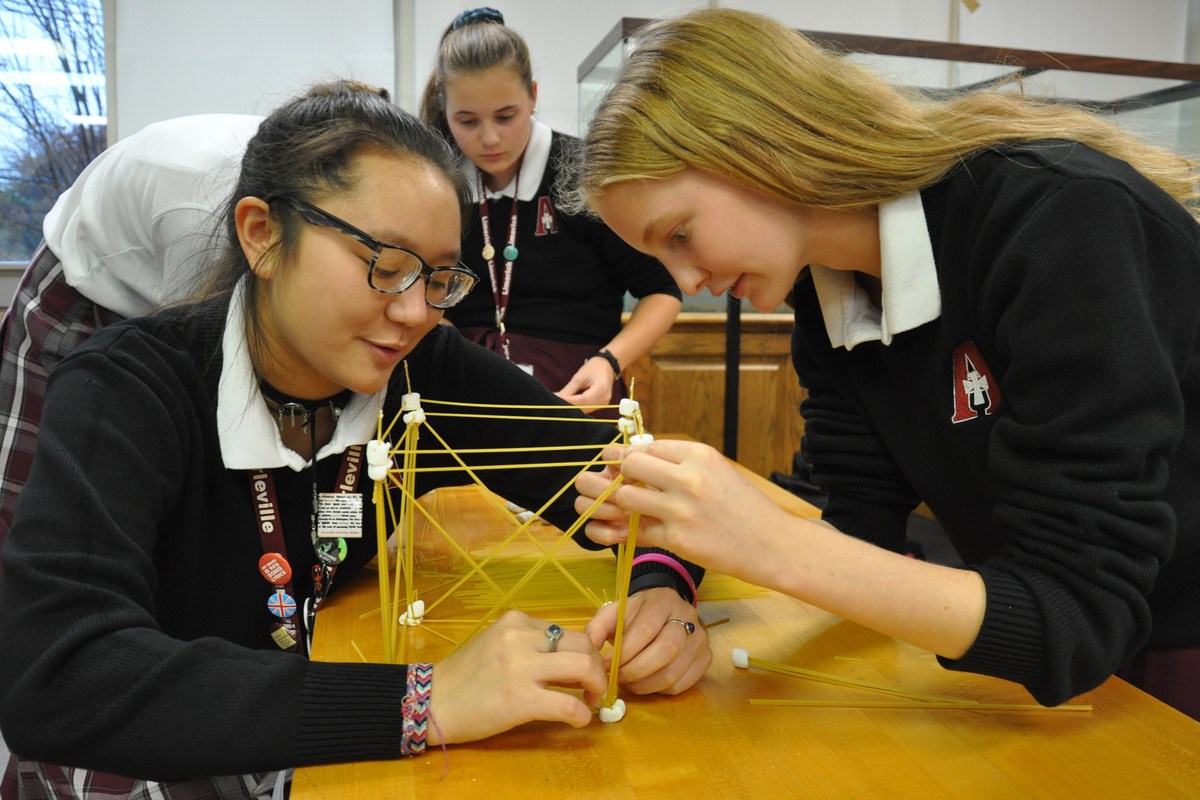 I observed unlikely pairings of tough looking students working side by side and being actively engaged working with more meek character students; students that would not give each other the time of day during their normal school activities. As I watched these transformations, I was hooked. I have been an active mentor for the last fifteen years and will continue as long as time and providence permit.
I observed unlikely pairings of tough looking students working side by side and being actively engaged working with more meek character students; students that would not give each other the time of day during their normal school activities. As I watched these transformations, I was hooked. I have been an active mentor for the last fifteen years and will continue as long as time and providence permit.
The mentoring organization I am involved with is called ACE Mentor Program. ACE stands for Architecture, Construction and Engineering. The mentors are made up primarily of a group of Architects, Contractors, and Engineers that work together to give students a taste of what the construction industry is about and see if there is an aspect of the construction industry that sparks an interest in them. The mentors work with the students over a course of fifteen 2 hour sessions. Mentors in each trade represented will share aspects of their trade to help the students learn about that trade where they will incorporate some aspect of that trade into the project they are developing. Students are exposed to architecture, interior design, structural engineering, civil engineering, mechanical and electrical engineering, and construction management.
Each year, when we start a new session, we ask the students what they have an interest in, whether to become an architect or an engineer or a contractor.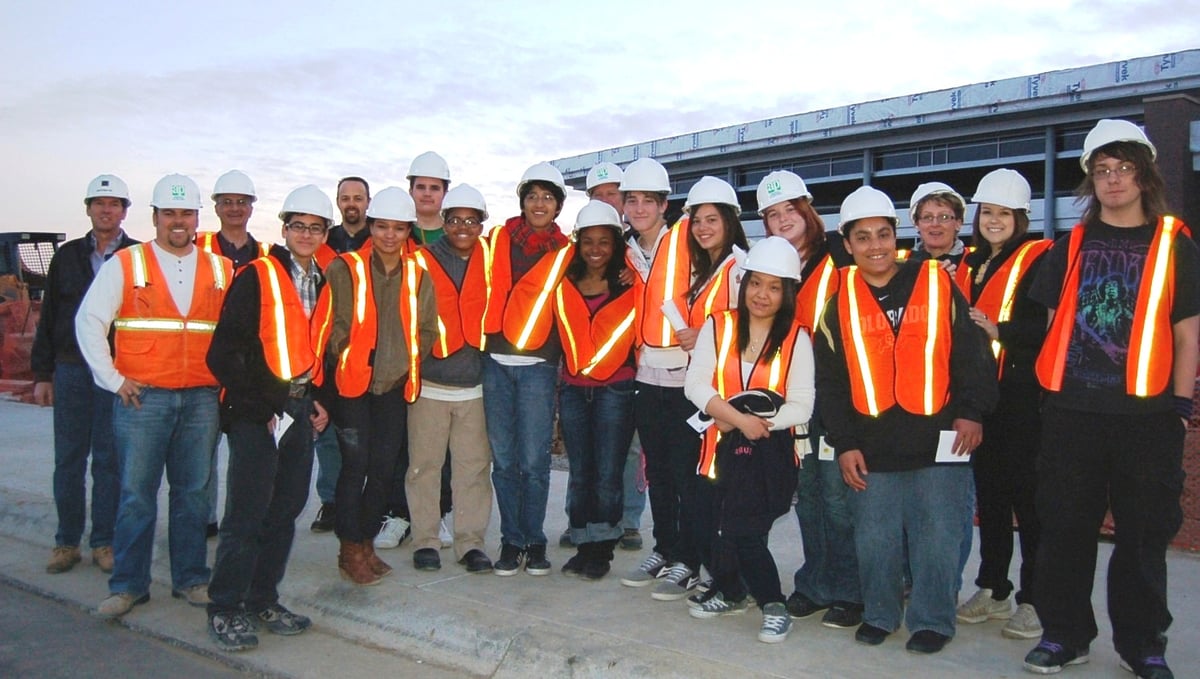 At the end of the fifteenth session, the students are again asked what they are interested in. Most remain unchanged. However, after getting a sample of each trade, some students change their interest to another one of the trades based on their experience. That is, in part, what ACE is all about.
At the end of the fifteenth session, the students are again asked what they are interested in. Most remain unchanged. However, after getting a sample of each trade, some students change their interest to another one of the trades based on their experience. That is, in part, what ACE is all about.
Having been active with ACE for fifteen years, I have seen students that we worked with pursue higher education in architecture, construction and engineering. One student that we worked with pursued a degree in architecture and has since become an architect. That architect is now one of the mentors that I currently enjoy working with. That is a full circle of success for ACE.
So Why Is ACE So Important?
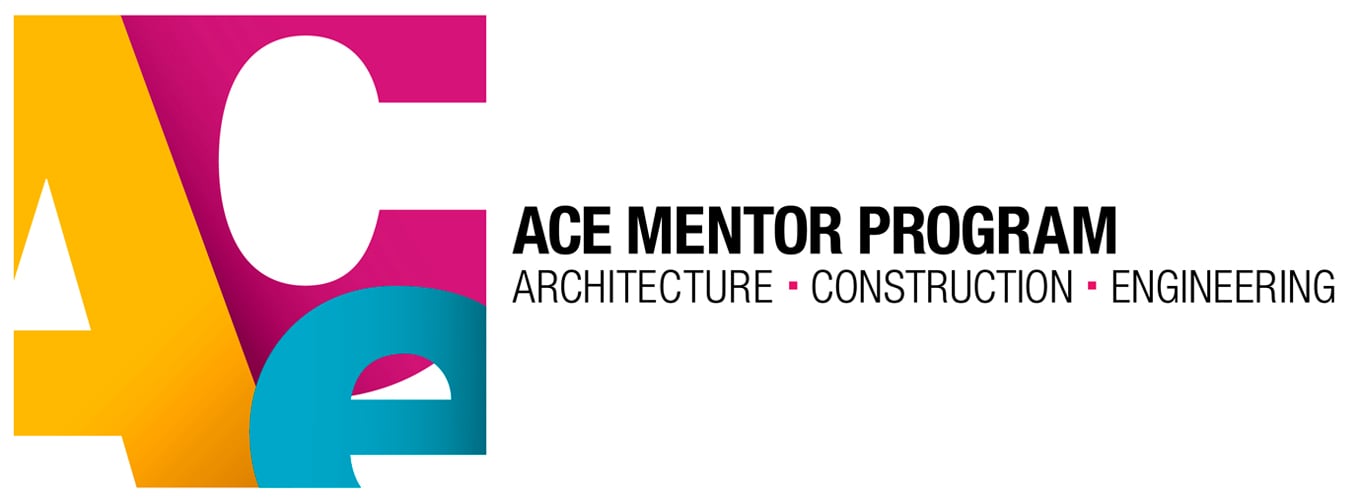 There are a number of reasons, including showing students what the construction industry is about. ACE was started by Charles Thorton, a structural engineer, over twenty years ago. Mr. Thorton noticed a decrease in interest in the construction industry and founded ACE to increase that interest. Since founding ACE, over 40,000 students had participated by the year 2015. In my own experience, and conversations with other architects, contractors and engineers in the industry, the same observations have been made. The industry is experiencing a shortage in new architects, contractors and engineers. The number of those retiring from the industry is higher than the number entering the industry. Sparking an interest for the construction industry in high school students is the most effective way to strengthen the vitality of the construction industry. In fact, studies have shown that 70% of students who participate in ACE pursue a college education in Architecture, Construction Management or Engineering. It just takes a small investment of time to have a dramatic impact for the industry. Currently, there are over 63 separate ACE mentoring affiliates across the country with more than 2,500 mentors and over 8,000 students involved annually. To learn more about the ACE Mentor Program, visit their website ACE Mentoring
There are a number of reasons, including showing students what the construction industry is about. ACE was started by Charles Thorton, a structural engineer, over twenty years ago. Mr. Thorton noticed a decrease in interest in the construction industry and founded ACE to increase that interest. Since founding ACE, over 40,000 students had participated by the year 2015. In my own experience, and conversations with other architects, contractors and engineers in the industry, the same observations have been made. The industry is experiencing a shortage in new architects, contractors and engineers. The number of those retiring from the industry is higher than the number entering the industry. Sparking an interest for the construction industry in high school students is the most effective way to strengthen the vitality of the construction industry. In fact, studies have shown that 70% of students who participate in ACE pursue a college education in Architecture, Construction Management or Engineering. It just takes a small investment of time to have a dramatic impact for the industry. Currently, there are over 63 separate ACE mentoring affiliates across the country with more than 2,500 mentors and over 8,000 students involved annually. To learn more about the ACE Mentor Program, visit their website ACE Mentoring
About the author
Mark Felgate is the Lead Electrical Engineer for the Massachusetts and Connecticut Offices for Hallam-ICS. Mark has been in the construction industry for 32 Years, has a Bachelor’s of Science Degree in Electrical Engineering from the University of Connecticut, and is a LEED Accredited Professional. Mark is a Member of NFPA and is currently serving as Past President of the Hartford Section of IES. Mark also continues to volunteer as a mentor through ACE Mentor since 2001.
Read My Hallam Story
About Hallam-ICS
Hallam-ICS is an engineering and automation company that designs MEP systems for facilities and plants, engineers control and automation solutions, and ensures safety and regulatory compliance through arc flash studies, commissioning, and validation. Our offices are located in Massachusetts, Connecticut, New York, Vermont and North Carolina and our projects take us world-wide.
You May Also Like
These Related Stories

Making a 120 Pound Robot that can Climb a Rope
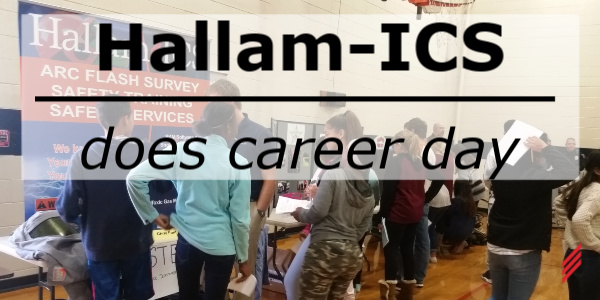
Hallam-ICS Does Career Day



Comments (1)